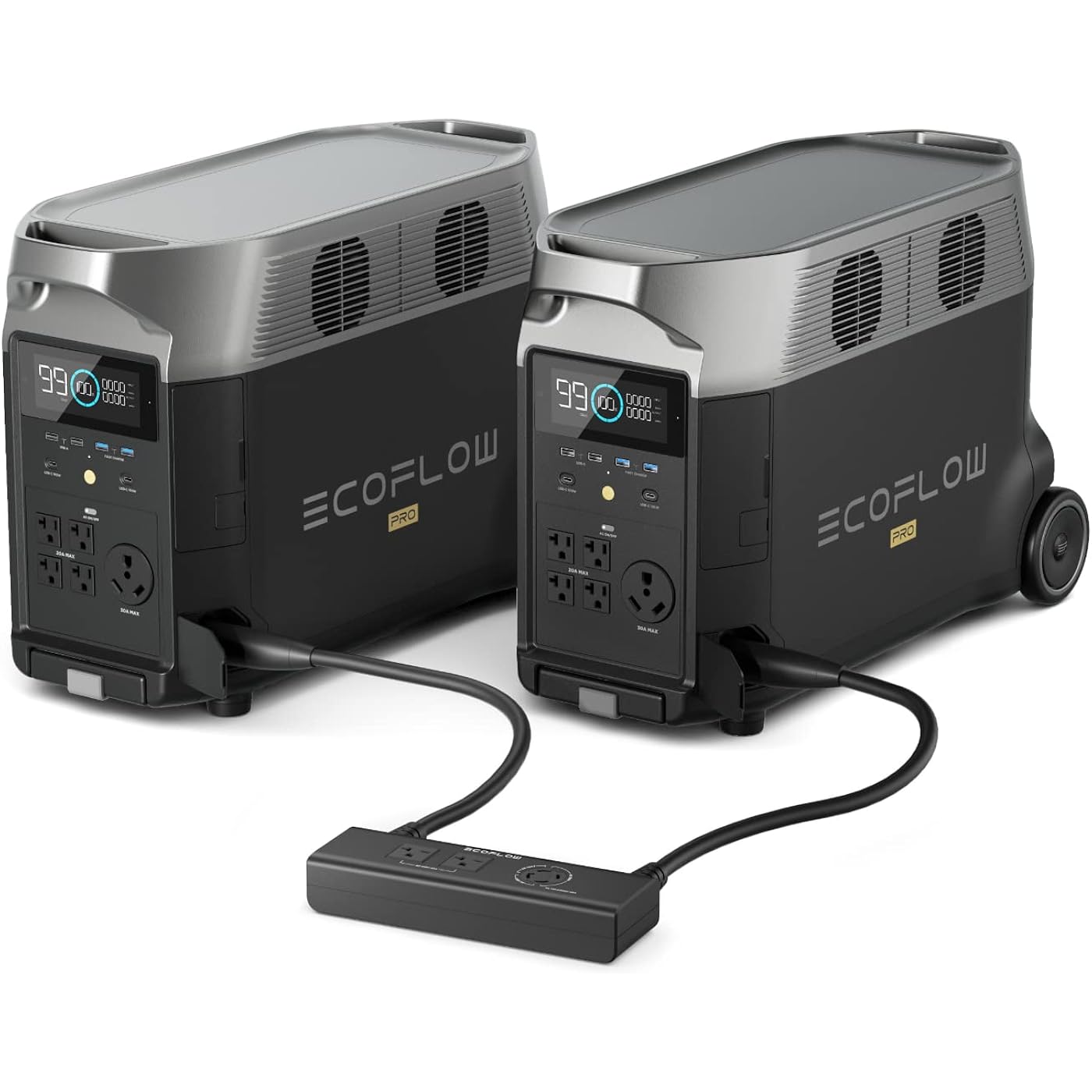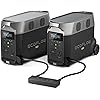









Notify me when this product is back in stock
Ready to go? Add this product to your cart and select a plan during checkout. Payment plans are offered through our trusted finance partners Klarna, PayTomorrow, Affirm, Apple Pay, and PayPal. No-credit-needed leasing options through Acima may also be available at checkout.
Learn more about financing & leasing here.
This item is eligible for return within 30 days of receipt
To qualify for a full refund, items must be returned in their original, unused condition. If an item is returned in a used, damaged, or materially different state, you may be granted a partial refund.
To initiate a return, please visit our Returns Center.
View our full returns policy here.
Size: DELTA Pro x 2+DVH
Color: 240V/7200Wh
Features
Brand: EF ECOFLOW
Wattage: 7200 Watt-hours
Fuel Type: Non-gasoline
Power Source: Battery-powered, Solar-powered, Gas-powered
Recommended Uses For Product: Commercial/Residential, Outdoor Use
Item Weight: 99 Pounds
Voltage: 240 Volts
Output Wattage: 7200 Watts
Special Feature: X-Boost Technology, X-Stream Fast Charging, Expandable Capacity
Included Components: 2 DELTA Pro 3600Wh Power Station, Double Voltage Hub
Brand: EF ECOFLOW
Wattage: 7200 Watt-hours
Fuel Type: Non-gasoline
Power Source: Battery-powered, Solar-powered, Gas-powered
Recommended Uses For Product: Commercial/Residential, Outdoor Use
Item Weight: 99 Pounds
Voltage: 240 Volts
Output Wattage: 7200 Watts
Special Feature: X-Boost Technology, X-Stream Fast Charging, Expandable Capacity
Included Components: 2 DELTA Pro 3600Wh Power Station, Double Voltage Hub
Color: 240V/7200Wh
Product Dimensions: 11.2"L x 16.4"W x 25"H
Model Name: EFD500
Engine Type: 4 Stroke
Ignition System Type: electric
Engine Displacement: 79 Cubic Centimeters
Frequency: 60 Hz
Manufacturer: EF ECOFLOW
Part Number: EF ECOFLOW
Item Weight: 99 pounds
Country of Origin: USA
Item model number: EFD500
Is Discontinued By Manufacturer: No
Size: DELTA Pro x 2+DVH
Style: 240V/7.2kWh
Item Package Quantity: 1
Special Features: X-Boost Technology, X-Stream Fast Charging, Expandable Capacity
Usage: Commercial/Residential
Warranty Description: 5 year warranty
Date First Available: November 30, 2022

















